INTERVIEWING USERS
HOW TO UNCOVER COMPELLING INSIGHTS
Steve Portigal
Interviewing Users: How to Uncover Compelling Insights
By Steve Portigal
Rosenfeld Media, LLC
457 Third Street, #4R
Brooklyn, New York
11215 USA
On the Web: www.rosenfeldmedia.com
Please send errata to:
Publisher: Louis Rosenfeld
Managing Editor: Marta Justak
Interior Layout Tech: Danielle Foster
Cover Design: The Heads of State
Copy Editor: Kezia Endsley
Indexer: Nancy Guenther
Proofreader: Dan Foster
2013 Steve Portigal
All Rights Reserved
ISBN: 1-933820-11-X
ISBN-13: 978-1-933820-11-8
LCCN: 2013934828
Printed and bound in the United States of America
DEDICATION
To my mom, Sharna Portigal, who taught me to ask questions.
HOW TO USE THIS BOOK
Who Should Read This Book?
This book is for everyone who talks to customers in order to do a better job of making something for them. With this books guidance, youll be able to gather more accurate and more finely nuanced information, whether youre a designer who brings insights into the design process, an engineer wanting to connect with how real people do their work, a strategist seeking a better way of identifying new opportunities, or a marketer who knows the value of data.
Even if youve never formally gone out to your users in order to inform your work, this book will guide you in the process of planning and executing a successful user research study. This book provides some very detailed best practices for studying people, and it encourages you to reflect on your own points of view.
And if you just like to ask questions, theres plenty of information here for you, too!
Whats in This Book?
, The Importance of Interviewing in Design, sets the stage, looking at why you learn about users and how interviewing compares with other methods.
, A Framework for Interviewing, defines an approacha way of beingfor interviewing. All the tactical best practices emerge from this framework.
, Getting Ready to Conduct Your Interviews, describes the steps to prepare for a user research study, from identifying the problem to finding participants and preparing your questions.
, More Than Just Asking Questions, introduces a range of methods that can enhance your interviews, including artifacts you prepare and take with you, activities you ask participants to engage in, or materials you develop together with them.
, Key Stages of the Interview, describes how to manage the roles of the team in the field, as well as the different stages that most interviews go through and how to prepare for and respond to those stages.
, How to Ask Questions, gets into the details of asking questions, with positive and negative examples that illustrate how simple word choices can make a big difference.
, Documenting the Interview, reviews how to capture all the data from interviews, the limitations (and unique strengths) of taking notes, and the necessity of a proper recording.
, Optimizing the Interview, looks at common variations, typical breakdowns, and how to improve as an interviewer.
Finally, , Making an Impact with Your Research, addresses what happens next: what you do with all that data and how to take the results back to the rest of the organization.
What Comes with This Book?
This books companion website ( rosenfeldmedia.com/books/user-interviews/ ) contains a blog, sample documents, related articles, interviews, and presentations. The books diagrams and other illustrations are available under a Creative Commons license (when possible) for you to download and include in your own presentations. You can find these on Flickr at
rosenfeldmedia.com/books/user-interviews/ ) contains a blog, sample documents, related articles, interviews, and presentations. The books diagrams and other illustrations are available under a Creative Commons license (when possible) for you to download and include in your own presentations. You can find these on Flickr at  www.flickr.com/photos/rosenfeldmedia/sets/ .
www.flickr.com/photos/rosenfeldmedia/sets/ .
FREQUENTLY ASKED QUESTIONS
Why is this even a book? Isnt this really just talking to people? I already know how to do that!
To learn something new requires interviewing, not just chatting. Poor interviews produce inaccurate information that can take your business in the wrong direction. Interviewing is a skill that at times can be fundamentally different than what you do normally in conversation. Great interviewers leverage their natural style of interacting with people but make deliberate, specific choices about what to say, when to say it, how to say it, and when to say nothing. Doing this well is hard and takes years of practice. is devoted entirely to techniques for asking questions.
Why would we bother to talk to our users? We use our products every single day and know exactly what we need to build.
People who make a product think and talk about it fundamentally differently than people who dont. While both groups may use the same product, their contextunderstanding, language, expectations, and so onis completely different. From a users point of view, a Big Mac eaten in Moscow is hardly the same product as a Big Mac eaten in San Jose, CA. And neither one is very much like a Big Mac eaten at McDonalds Hamburger University in Oak Grove, IL. A strong product vision is important, but understanding what that vision means when it leaves your bubble is make-or-break stuff. In , I examine the impact that interviewing has on project teams.
We dont have time in our development process to interview our users, so what should we do?
Developing insights about users doesnt always have to be a milestone in a product development process. Insights can be an organizational asset that is assembled quarterly (or whenever) to feed into all aspects of product development, marketing, and so on. Once a baseline is established, subsequent research can enhance and expand that body of knowledge. Within time constraints, Im constantly impressed by people I meet who are so hungry to bring user information into their work that they find ways to do whatever they can. In , I discuss the trade-offs when time is the constraining resource.
Which team members should interview users?
While more design organizations are staffing a research role, the designated researchers arent the only ones who go out and meet customers. Ive seen many times that as companies buy in to the value of research insights, the researchers shift from struggling for acceptance to being overwhelmed by demand. Its not unusual to see them scaling up their own teams, working with outside partners, and training their colleagues to be better researchers themselves. Ultimately, who shouldnt be interviewing users? There will always be a range of strengths in interviewing skills; leading research is a specialized function, but user research is something that everyone can and should participate in. In most cases, this will exclude functions unrelated to key aspects of the business, but given the cultural value of understanding the customer, everyone could be involved in consuming the results of interviewing users, even if they arent directly speaking to those users themselves. In , I look at how to manage a team composed of seasoned interviewers and less-savvy colleagues.
We interviewed users and didnt learn anything new. How does that happen?


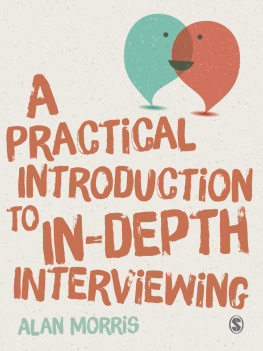
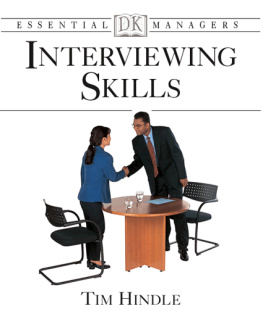

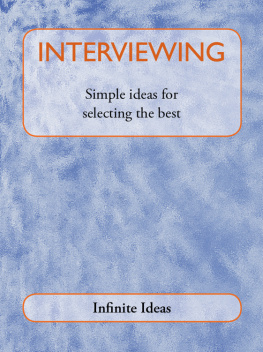
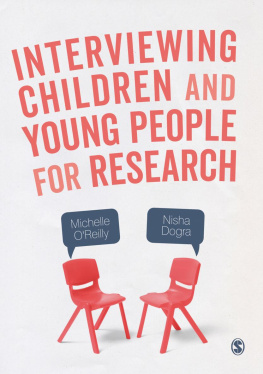
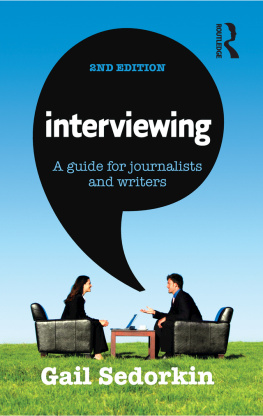
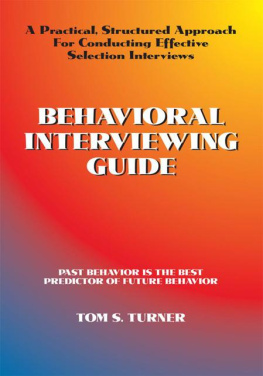

 rosenfeldmedia.com/books/user-interviews/ ) contains a blog, sample documents, related articles, interviews, and presentations. The books diagrams and other illustrations are available under a Creative Commons license (when possible) for you to download and include in your own presentations. You can find these on Flickr at
rosenfeldmedia.com/books/user-interviews/ ) contains a blog, sample documents, related articles, interviews, and presentations. The books diagrams and other illustrations are available under a Creative Commons license (when possible) for you to download and include in your own presentations. You can find these on Flickr at